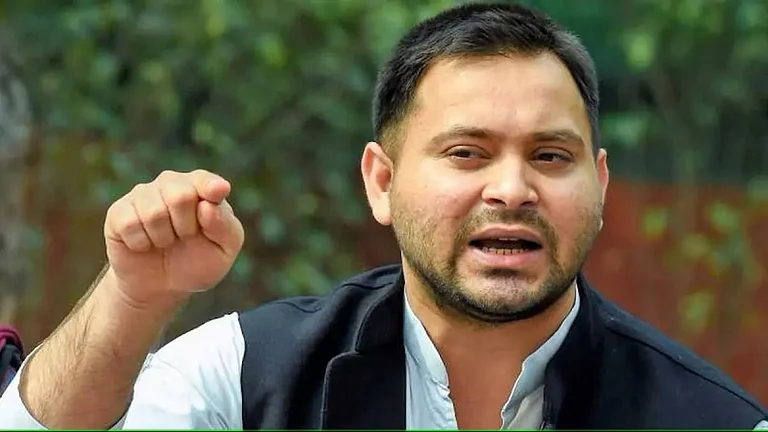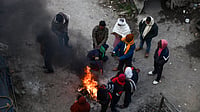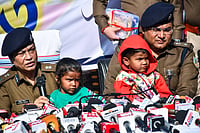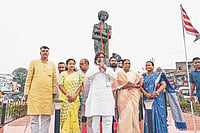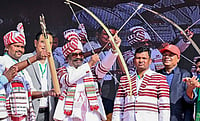
Summary of this article
Prashant Kishor’s decision not to contest from Raghopur reflects political pragmatism rather than fear. Instead of risking a high-profile defeat in Tejashwi Yadav’s bastion, Kishor chose to prioritize his long-term movement-building over short-term symbolism.
By opting out of a dynastic stronghold, Kishor reinforces Jan Suraaj’s positioning as a people’s movement—focused on systemic reform rather than rivalry with individual leaders or political families.
With Jan Suraaj’s grassroots network still nascent and regionally limited, Kishor’s withdrawal underlines the party’s focus on strengthening its base before entering high-stakes electoral contests.
For months, Jan Suraaj chief Prashant Kishor had hinted that he might contest the upcoming Bihar Assembly elections. Speculation intensified when reports suggested that he could take on Tejashwi Yadav in Raghopur, which is considered the RJD leader’s bastion. Kishor’s repeated visits to Raghopur and his participation in local party meetings just days ago further fueled this belief. However, with only two days left for nominations, Kishor’s announcement that he would not contest from Raghopur has sparked significant political interpretations.
Kishor justified his decision by saying that contesting the polls would cost him three to four crucial days, during which he would be unable to campaign for Jan Suraaj’s candidates. Therefore, the party decided that he would not contest the election.
Veteran journalist Surur Ahmad remarked, “PK can neither become Kejriwal, nor is Bihar like Delhi. Bihar’s rural voter behaves very differently from Delhi’s urban voter, and caste equations dominate everything here. He might have floated the idea of contesting to build momentum, but ground realities eventually forced him to reconsider.”
Raghopur is a Yadav-dominated constituency, and Ahmad noted that the Yadav community remains deeply loyal to Lalu Prasad Yadav, much like the RSS cadre’s loyalty in elections. In his view, Kishor’s contest from Raghopur would have made Tejashwi’s path easier, not harder. Ahmad added that by backing out at the last moment, Kishor has also exposed the limits of his political strategy.
There are multiple political and strategic reasons being cited behind Kishor’s withdrawal. Raghopur has long been a stronghold of the Yadav family—represented successively by Lalu Prasad, Rabri Devi, and now Tejashwi Yadav, who is contesting for the third time from this seat. While Kishor’s candidature from such a symbolic constituency would have been seen as a bold move, a possible defeat there could have severely damaged his political credibility.
Moreover, Kishor has been portraying his Jan Suraaj initiative as a “people’s movement.” Contesting from a powerful political family’s seat would have contradicted that narrative. His decision not to run from Raghopur could thus be seen as an attempt to emphasize that his fight is not against individuals or dynasties, but against the political system itself.
Another factor could be the limited organizational strength of Jan Suraaj, which remains concentrated in only a few districts. Kishor might prefer to contest later from a region where his movement has deeper roots and better prospects for a solid political launch.
Jan Suraaj leader Sarwar Ali later confirmed that Kishor would not contest from any seat in Bihar. “Had PK contested, it would have been from Raghopur,” he said, adding that the decision was purely organizational, allowing Kishor to focus on campaigning across constituencies rather than his own.
RJD spokesperson Mrityunjay Tiwari, however, dismissed this explanation, saying, “PK backed out out of fear of defeat. In Tejashwi Yadav’s strong wave, he would not have stood a chance. Today, Tejashwi is the first choice of Bihar’s youth, committed to jobs, education, and healthcare.”
Ultimately, Kishor’s decision not to contest appears to be a calculated one. Analysts believe it reflects not fear, but pragmatism, an attempt to prioritize building a sustainable political base over taking symbolic risks.
Prashant Kishor’s withdrawal from Raghopur may appear as a retreat, but it’s more a reflection of strategic realism than hesitation. By avoiding a high-risk battle in Tejashwi Yadav’s stronghold, Kishor seems intent on strengthening his long-term movement rather than chasing short-term political drama.







